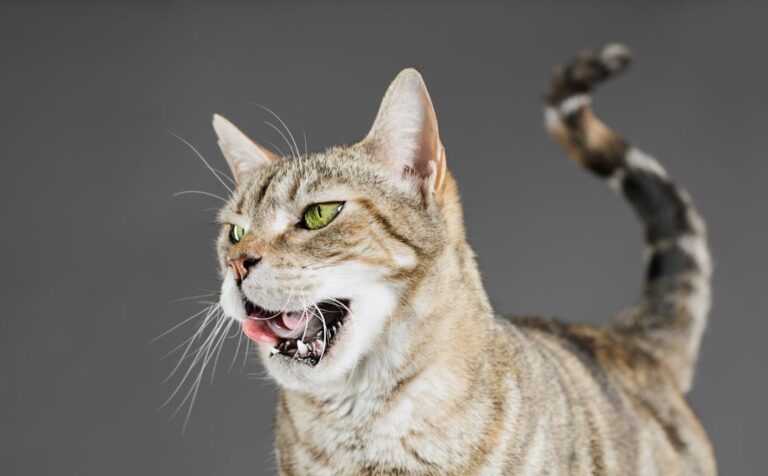Why do cats drool when they purr? This intriguing phenomenon has puzzled cat owners and enthusiasts for years. When a cat purrs, it often accompanies the purring with a small amount of drooling. But what causes this drooling and what does it mean?
One possible explanation for this behavior is that purring triggers the release of excess saliva in cats. When a cat is in a state of relaxation and contentment, such as when they are being petted or cuddled, their purring can stimulate the salivary glands, resulting in drooling. This can be seen as a sign of the cat’s overall well-being and satisfaction.
However, it is important to note that excessive drooling in cats can also be a symptom of underlying medical conditions. Dental issues, such as gum disease or tooth decay, can cause discomfort and lead to increased salivation. Oral infections or inflammation can also result in excessive drooling. In some cases, neurological disorders may be the cause.
To determine the reason behind a cat’s drooling while purring, it is essential to observe their overall behavior and health. If the drooling is accompanied by other concerning symptoms or if it persists for an extended period, it is advisable to consult a veterinarian for a thorough examination and appropriate treatment.
Salivation and Contentment

Salivation is closely linked to a cat’s purring. When a cat purrs, it triggers the release of excess saliva. This excess saliva can then lead to drooling. So, when you see your cat drooling while purring, it is a sign that they are in a state of deep relaxation and contentment.
It’s important to note that not all cats drool while purring, and the amount of drooling can vary from cat to cat. Factors such as breed, age, and individual personality can influence this behavior. However, if your cat suddenly starts drooling excessively or if you notice any other concerning symptoms, it is always best to consult with a veterinarian to rule out any underlying medical conditions.
Medical Conditions and Drooling

Dental problems, such as gum disease or tooth decay, can cause discomfort and pain in cats, leading to excessive drooling. Additionally, oral infections, such as stomatitis or gingivitis, can also result in increased salivation. These conditions require prompt veterinary attention to alleviate the discomfort and prevent further complications.
Furthermore, certain neurological disorders can affect a cat’s ability to control their salivary glands, leading to excessive drooling. Conditions like epilepsy or nerve damage can interfere with the normal functioning of the nervous system, resulting in increased saliva production.
If you notice that your cat is drooling excessively while purring, it is essential to consult a veterinarian to determine the underlying cause. Through a thorough examination and possible diagnostic tests, the veterinarian can identify and treat any medical conditions that may be contributing to the excessive drooling.
Frequently Asked Questions
- Why do cats drool when they purr?
- When cats purr, it can trigger a relaxation response in their bodies, which may lead to excess saliva production. This is similar to how some humans may experience increased salivation when they are in a state of deep relaxation or contentment.
- Is drooling while purring normal for cats?
- Yes, drooling while purring is generally considered normal for cats. It is a sign that they are in a state of relaxation and contentment. However, if you notice excessive drooling or any other concerning symptoms, it is recommended to consult a veterinarian to rule out any underlying medical conditions.
- Can medical conditions cause drooling in cats?
- Yes, certain medical conditions can cause excessive drooling in cats. Dental issues, such as gum disease or tooth decay, can lead to increased salivation. Oral infections or injuries can also result in drooling. Additionally, neurological disorders or certain medications may contribute to excessive drooling in some cats.
- How can I tell if my cat’s drooling is a sign of a medical problem?
- If your cat’s drooling is accompanied by other concerning symptoms, such as bad breath, difficulty eating or drinking, changes in behavior, or excessive pawing at the mouth, it may indicate an underlying medical issue. It is best to consult a veterinarian for a thorough examination and proper diagnosis.
